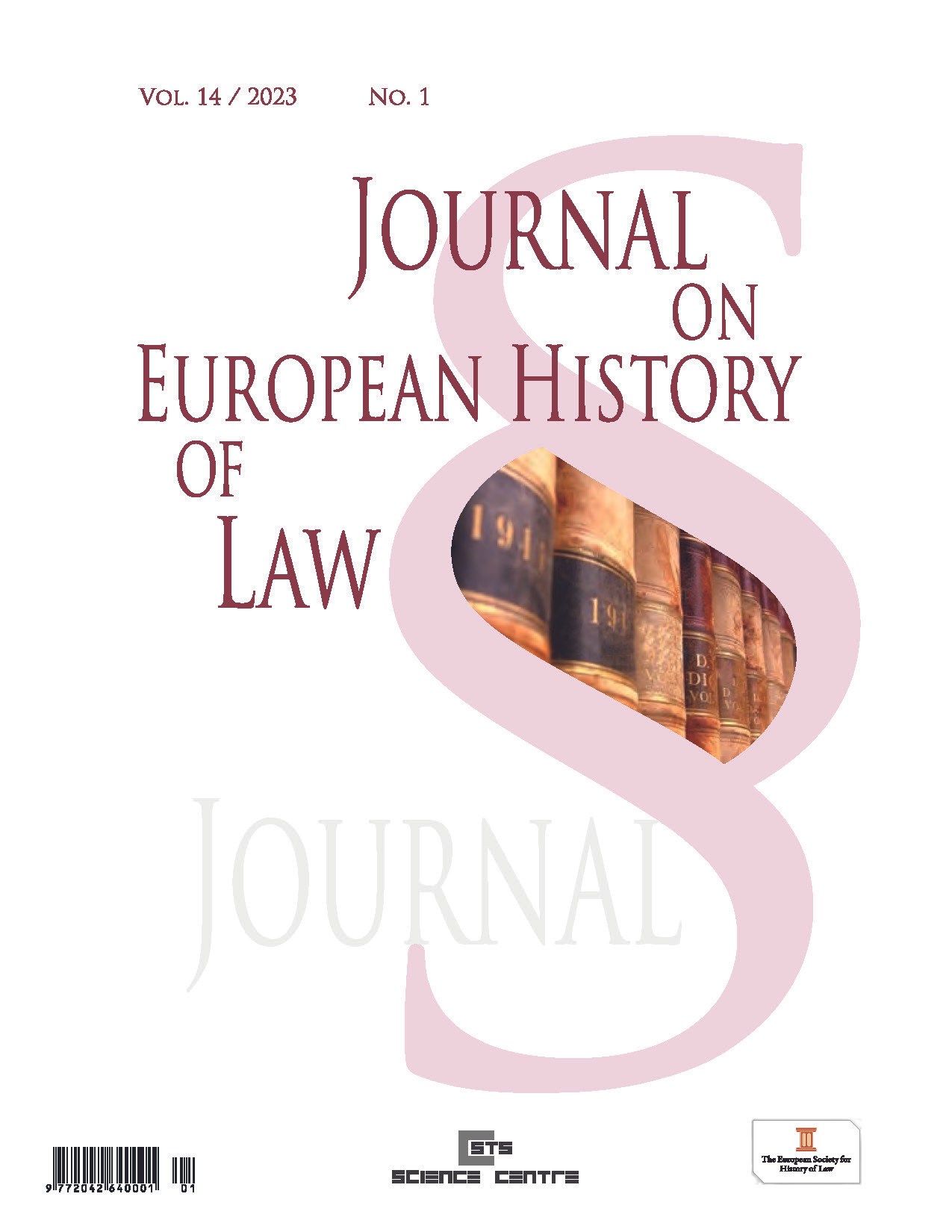Strafrechtliche Kommissionstätigkeiten im Lande und im Komitat (1791–1832)
Criminal Law Commission Activities in the Country and the County /1791–1832/
Author(s): Kristóf Mihály HeilSubject(s): History, Law, Constitution, Jurisprudence, Criminal Law, 18th Century, 19th Century
Published by: Evropská společnost pro právní dějiny, z.s.
Keywords: Civil Transition; Regular Committee Works; Draft Bills; Reform, Criminal Law; Commission Activities;
Summary/Abstract: The codification attempts of Criminal Law in the time of the Enlightenment of the 1790s and the liberalism of the 1830s and 1840s are the focal points of the study. In order to draft bills to reform the feudal state based on customary law and privileges without changing the basic public law framework, nine so-called national regular committees were set up by Article 67 of Act 1791. The committees completed their work and sent their drafts, known as operatives, to the king between 1792 and 1795. After all, the completed operatives were not put on the agenda of the Parliament due to changes in the domestic and foreign policy status quo. They could find a way out from the archives of the Chancellery only thanks to the committees set up by Article 8 of Act 1827. These committees were responsible for reviewing the “forgotten” operatives, which were finally printed and sent to the counties for comments. The Hungarian liberal noble opposition was organised first as a movement and then as a party during these county debates (1831–1832) in order to replace the feudal system by manifesting the basic principles of the civil transition in the so-called laws of April.
Journal: Journal on European History of Law
- Issue Year: 14/2023
- Issue No: 1
- Page Range: 134-140
- Page Count: 7
- Language: German

